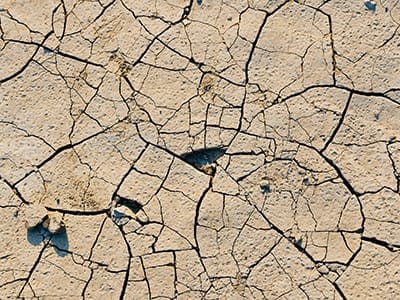High Educational Value
Nationally recognized educational quality at an affordable price.
*Source: ONet Online/U.S. Bureau of Labor Statistics. Unity cannot guarantee employment. Salary data represents averaged earnings for occupations listed and includes workers at all levels of education and experience.

In this course, you will explore how the earth’s systems function, how human actions impact the environment, and how to build a sustainable future. We live in an inextricably connected world where everything we consume and everything we do connects us back to nature and the planet somehow.

Understanding the causes and consequences of environmental injustice is essential for all environmental professionals, and ethical considerations are a necessary addition to your toolkit. Through this course you will examine some of the systemic failures that have resulted in environmental injustices and consider some of the ethical, legal and policy issues raised.

Businesses have a profound impact on our world. Sometimes their actions and policies create inequalities and environmental destruction. Other times, corporations are a source of positive social change and sustainability. In this course, you will examine social change through a strategic management lens.

Environmental studies allows you to explore diverse career opportunities related to the environment and sustainability. You can work as an environmental consultant, helping organizations navigate environmental regulations and adopt sustainable practices. Alternatively, you could become a sustainability manager, developing, and implementing strategies to minimize environmental impact within businesses. Additionally, you can pursue roles as an environmental policy analyst or environmental educator.
The BS in Environmental Studies at Unity Environmental University prepares students for a wide range of environmental careers. This interdisciplinary program provides students with a holistic understanding of environmental issues, including those related to natural resources and resource management. The program teaches students to use tools and perspectives from a variety of disciplines including the natural sciences, the social sciences, and the humanities to understand the causes and consequences of environmental problems. Graduates will be able to enter a wide variety of environmental careers.
Your online education should be affordable and manageable. Thanks to our promise to keep tuition flat through 2030, you won’t be burdened with unexpected increases or fees.
Our team of distance education concierges will work with you through the admissions process to help you plan and pay for your degree. Learn more about the costs here.
Our comprehensive 120-credit program can be tailored to fit your schedule and goals! Completion time is flexible, determined by the number of credits you choose to take each term (8 terms/year) and less time with transfer credits. Without transfer credits, you can anticipate the following completion times:
General Education Core: 24 credits
Elective Courses: 77 credits
Program Core: 19 credits
For course requirements and a better look into your program, view our full course catalog. Then apply online for free to get started.
The environmental studies degree requires 120 credits. You may transfer in up to 90 credits from outside institutions. View our full course catalog for a better look into your program. Then apply online for free to get started.
Nationally recognized educational quality at an affordable price.
Committed to sustainable practices to prepare for a future of environmental awareness.
Dedicated to turning career and academic aspirations into tangible achievements.
Accepting up to 90 transfer credits to graduate sooner and save money.
Connect with experts who share your passion for working in the industry.
Ranked in the top 1% of universities nationwide by the Social Mobility Index.
With up to 8 terms a year, you can take a break without jeopardizing financial aid.
Balance life, work, and education by studying when and where you want